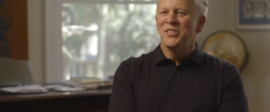Isolation is Ruining Your Quest for Vocational Clarity
Blog / Produced by partner of TOW
by VOCA Center, a partner of Theology of Work Project, November 8, 2021
You get a call, an email, or a text. “Guess what? I’ve got a new job.” Out of the blue, with no prior warning a good friend, a family member, or maybe even you announce to people in your closest circles that you’ve made a major change. None of them were aware. None were consulted. A transition is made known only after the fact. The transitionee leaves many of their closest scratching their heads. And everything settles down until they jump ship again.
We know that more Americans are changing jobs than at any other point since records have been kept. But how are these adults approaching this task of discerning what work they are meant to do? And where is this “gotcha” dynamic coming from?
New Barna data—now published in You on Purpose, a book by Dr. Stephanie Shackelford and Bill Denzel—sheds light on how U.S. adults and practicing Christians think about the process of discovering one’s calling. This research explains why so many have deep doubts about their vocational paths and career choice.
In this post, we pass on one of Barna’s key findings. The data reveals one of the ways over half of us are sabotaging our confidence when it comes to our vocational path.
“Just over half of U.S. adults (57%) and practicing Christians (56%) believe that understanding one’s calling is primarily a solo journey. That leaves roughly one in three disagreeing, and 9 percent of all adults and 7 percent of practicing Christians being unsure.” (Barna Research on Vocation)
Over half of us (whether fitting into the “Christian” category or the general populations), over half of us view vocational discernment as an individual sport. We do this on our own. We are on our own to make our way.
In this piece, we explore what might be driving this approach to career navigation. We also delve into what is lost if it’s true. Finally, we suggest a better way to approach the vocational discovery journey.
What’s behind this stat?
There are at least three forces that are driving this lone-ranger approach to vocational navigating: The Trust Deficit, Toxic Individualism, and Vocational Shame.
1. The Trust Deficit: Trust in others is at a low point in our culture. When it comes to vocational direction—who can you trust?
Colleges make more money if you take more time to find your way.
Parents have ego-interests in your success, haven’t done so well themselves, or are trying to get you to live out their dreams.
Church leaders are always implying that the best vocation is full-time Christian work.
Everyone seems to think you should do what they do. Where can you find someone with an unbiased perspective, who just wants you to be the you were created to be?
2. Toxic Individualism: In my city (New York City), only 25% of the people who live here were born here. This means 75% left home to settle here. They broke with the bonds of comfort and family to start a new life in the big city. Our whole culture is fueled by this sense of individual destiny, this breaking of communal ties for personal success, the bold, brave soul breaking out on her own.
This courage we admire has a toxic side. We become so hardened we listen to no one. We become so determined to figure it out on our own that we cut ourselves off from real-world sources of wisdom. Toxic Individualism leaves the practitioners isolated, lonely, and rootless. And as the multi-generational Harvard study on happiness proves, the depth and breadth of one’s human bonds are directly correlated to one’s happiness. The happiest people do life in relationship with others.
3. Vocational Shame: Many of us are embarrassed by our work. We feel we have not lived up to our potential. We feel our peers are doing better than we are (this starts in High School and never ends). I was coaching a college junior who still wasn’t sure what he should do. Many of his peers had already lined up their post-graduation assignments. He felt behind. He didn’t dare tell any of them.
Somehow the following crippling idea has crept into our subconscious: successful people always know where they are going.
The trust deficit, toxic individualism, and vocational shame are driving us into isolation as we find our way with work. What are we missing as we yield to these forces?
What are solo travelers missing?
This quote from the writer of Ecclesiastes sheds light on all that solo travelers are missing.
Two are better than one, because they have a good reward for their toil. For if they fall, one will lift up his fellow. But woe to him who is alone when he falls and has not another to lift him up! Again, if two lie together, they keep warm, but how can one keep warm alone? And though a man might prevail against one who is alone, two will withstand him–a threefold cord is not quickly broken. Ecclesiastes 4:9-11
What are we missing when we go solo?
Help: if we get off course there’s no one to bring us back. We increase our risk of getting stuck. Warmth: in the physical world, the danger was overexposure and hypothermia. The job-search world can be harsh—you put yourself out there, you get rejected. You are missing the encouragement of fellow travelers when you go alone. Protection: All worlds are full of predators, those who would take advantage of your need. Unqualified career counselors, sales training schemes, all sorts of entities aim to profit on your search without really helping. Co-travelers can warn you.
I would add the following:
1. Wisdom: Wisdom is knowledge around what to do. It’s practical.
Whoever isolates himself seeks his own desire; he breaks out against all sound judgment. Proverbs 18:1
This proverb says that the isolated will miss sound judgment: Judgment about ourselves and judgment about the ins and outs of our given industry and career path. You cannot possibly know yourself perfectly. You need outside counsel. No amount of googling can make up for the first-hand knowledge that people have of an industry, career path, or company culture.
2. The Gift of Your Need: when we think of asking for help, we think it's all about us. We need advice or connections. We benefit when someone leans in and provides input. They are doing us a favor. This is true. And yet, we are also doing them a “favor.” We are providing them a platform to share their expertise and to invest in someone else. Most people derive a great deal of joy from helping others. When we go it alone, we rob others of the opportunity.
Calling is always communal.
Believe that the concept of calling or vocation has always been communal. Clarity of calling arises in the community. Our respective vocations are meant to take our work beyond ourselves. As Peter wrote, use your gift to serve others (1 Peter 4:10). And as Martin Luther said, God uses our vocations to provide for our neighbors.
The travelers who went before us in the Bible found their callings affirmed by the community. David had been “anointed King” by Samuel, but it wasn’t actualized until the leaders of Israel asked him to be King (2 Samuel chapters 2 and 5). Paul was set apart in the context of community (Galatians 2 and Acts 13). In every case individual experiences were not enough, a group of committed believers clarified and affirmed the calling of the person.
Having a community behind your calling makes it durable.
Steps You Can Take:
If you want to go beyond the limits of solo navigating, what can you do?
Ask: We are convinced that God has surrounded you with people with whom you need to get to where he wants you to go. Look around and ask. Ask people for advice. Ask them what they’ve learned. Ask them who you should talk to. Don’t say no for people who might help you. Make your request and let them decide.
Level-Up Your Networking
Consider a Coach: Every day a VOCA coach is working with someone like you. We are professionals and committed Christ-followers who believe an investment in coaching should pay off spiritually, professionally, and even financially. We offer free consultations to anyone interested in exploring the journey. Our clients love the fact that 1) they aren’t traveling alone, 2) they have someone who can provide unbiased feedback and 3) we have traveled with so many through career clarification and change that we have genuine expertise to share.
If you think it's all up to you to find your way with work, to navigate vocational choice on your own, that idea came from somewhere. It is alien to the life that God made you for. Your Heavenly Father has appointed fellow travelers to encourage you and guide you to each stop on your vocational journey. Don’t settle for less.
.jpg)







.jpg)
